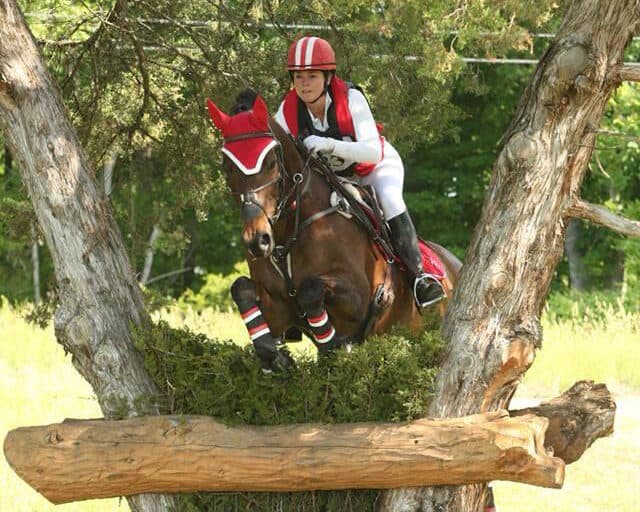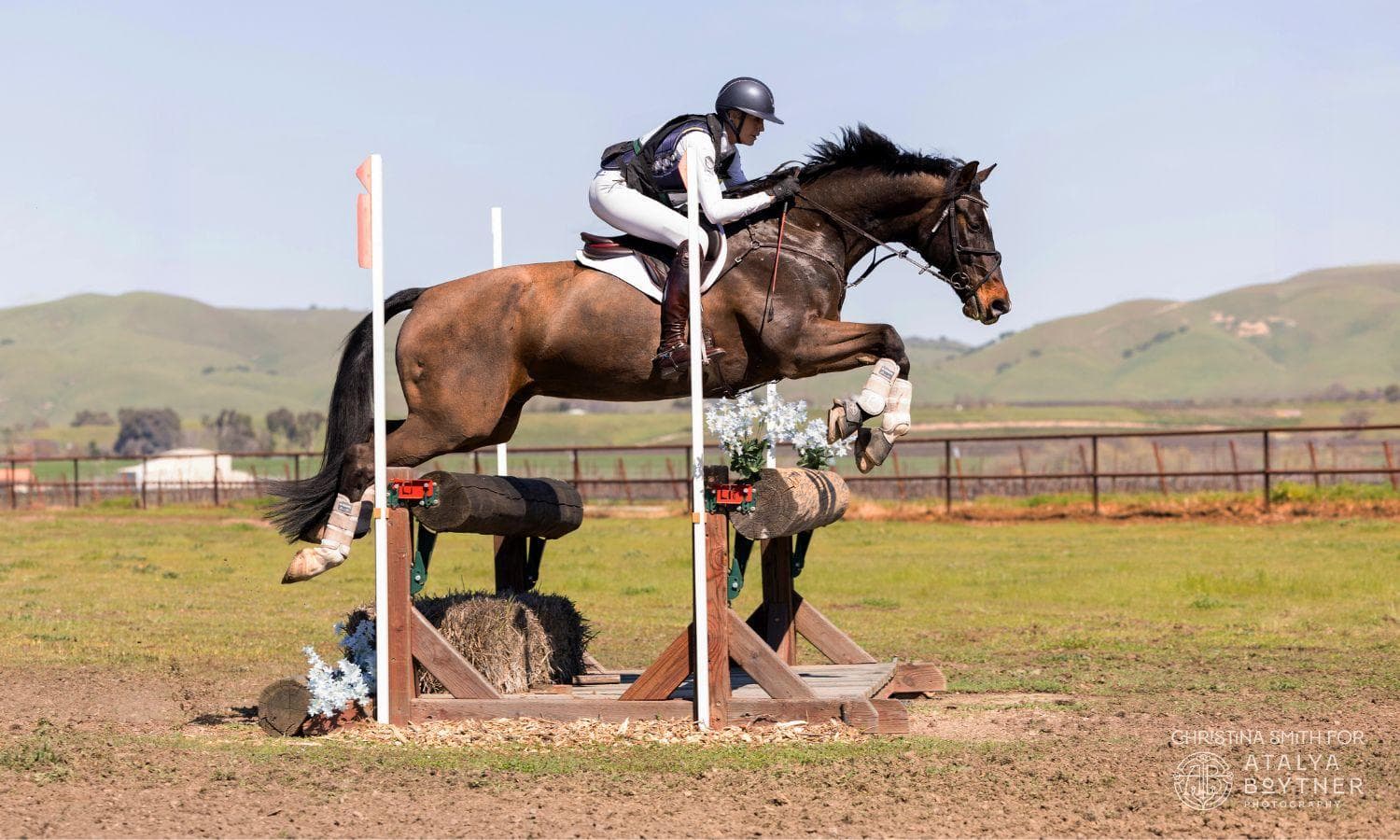Bridging The Gap: From Rider to Professional

A friend once told me that to be a professional in this sport, you couldn’t just love competing; you had to love the every day riding and care of the horse. At the time, I nodded along with him and agreed, but didn’t fully realize just how right he was until I decided to create my own business. On one horse there is probably a total of fifteen minutes actually spent in the competition ring compared to the hours upon hours spent practicing and also on maintaining and caring for said horse. Eventing is much like an iceberg in that way: the successes (and concurrently, failures) seen in the show ring pale in comparison to the every day tasks that were required to get there. And especially for professionals, who make this hobby their lifestyle, the never-ending days to make it to the shows with not just one, but multiple horses, is all part of the norm.
Oddly enough, I never actually wanted to be a professional growing up. I didn’t know what I wanted to be, my only desire was to go Advanced. I grew up in the northwestern part of South Carolina which means that I wasn’t near Aiken or Charleston, pretty much the only parts of South Carolina anybody (horsey or non) knows about. That being said, there luckily were some Eventing barns in that area and once I got a taste of the sport I was hooked. I ended up attending college on the terms that if I maintained my scholarship I was allowed to board my horse at a barn close by and keep competing. My poor parents should have known by that point that there was no turning back.
After college and a period of being a working student for a couple fantastic four-star riders, I decided to start branching out on my own. I ended up moving to the 'Mecca of Eventing' (aka Middleburg, Va.) and slowly began inching my way up the professional ladder. After about a year, I found a great little barn to rent, started teaching lessons and began having boarders and horses in training.
One of the biggest things I didn’t realize about becoming a professional was the responsibility of becoming a coach and just how terrifying this could be. The idea that I was now responsible for deciding what exercises to practice, what shows to go to, the fitness of the horse, discussing daily rides, and what level a horse/rider combination should compete at was a bit daunting, especially since I’m one of those people who can’t make up her own mind for what to have for breakfast.
Maybe it’s something that gets better the more you coach, but one of the hardest things for me is actually watching my students compete. I never got nervous for the four-star riders when I worked for them like most working students and/or grooms do. They’re all such phenomenal riders, and I trusted that they would know what to do if trouble happened. I do get nervous for myself as most riders tend to, but most of the butterflies go away once I go through the start box and determination is the only thing running in my veins at that point. But watching my own students tackle courses is a completely different story. Possibly this is similar to when parents drop their kids off at kindergarten for the first time; your whole world is filled to the brim at that moment with emotion and the desire for them to succeed is overwhelming. A million thoughts always go through my mind: will they remember to ride the coffin like we talked about during the course walk? Do they realize they need more canter coming into that bigger table? MORE LEG!! Okay, now that’s too much canter. Really, way too much canter. SLOOWWW DOWWWWN.
This realization of just how much pressure and responsibility being a coach is makes me very apologetic to all of my former (and current) coaches. As a 16-year-old, my horse and I loped around finding the longest distances to jumps possibly ever attempted. During college one year, I found myself with a giant hematoma (and now a beautiful scar) on my leg due to this horse deciding that a one stride looked MUCH more doable as a bounce. Unfortunately it wasn’t nearly as doable as she originally thought. Probably the most scarred of all of us was my coach at the time, which now when I look back I certainly don’t blame her. The good news is that this same horse (and luckily rider) figured out how to jump from a normal distance and now compete at the two-star level.
I quite honestly never thought that I would enjoy teaching or coaching. Growing up, I was always a rider and putting what to do into words was difficult. As I’ve stepped into the role of a professional, I’ve not only begun to like teaching, but it’s one of the things I actually most enjoy doing. I love that moment when both horse and rider “get it”. Or when they conquer something they’ve been struggling at for a while. Don’t get me wrong, I adore and always want to be a rider first and foremost. But it’s so rare in this world to truly make a positive difference in someone else’s life that when you get that opportunity, you not only take it, but you also relish in their accomplishments for them. Funnily enough, as an equestrian professional, I’m beginning to find that while the horses make the journey, it’s the people that really make the journey worthwhile.
About Ashley Kriegel Trier
Ashley is a CCI2* rider who is based out of The Plains, Va. Following a lifetime of riding and competing and several years as a working student for CCI4* riders, Ashley branched out on her own as a professional in 2013. She currently is competing her own horses at the Intermediate and Preliminary levels and bringing along a 4-year-old OTTB all while teaching a slew of juniors and adult amateurs to learn to love and compete safely in the sport of Eventing. Ashley will be sharing her experiences navigating the Eventing world as a young professional in her monthly blogs. To learn more about Ashley visit: http://ashleytriereventing.com/















